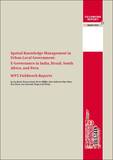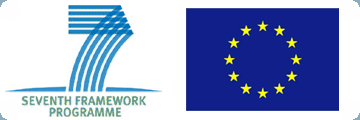|
This paper presents the analytical framework developed iteratively by the research team of the Chance2Sustain (C2S) research project between 2010 and July 2014, in order to answer the main research question which was posed at the outset of the research, namely: how can spatial knowledge management (SKM) and participatory governance contribute to sustainable urban development?
The aim of the paper is therefore to present a theoretical framework for understanding the empirical research undertaken in the C2S project in order to make a contribution to the current debates about the transitioning of cities of the South to more sustainable futures. To answer this question, the C2S project was designed to undertake comparative empirical research in 10 cities in four fast-growing countries of the South to understand the role of SKM and participatory processes in facing the challenges in a number of strategic domains of urban development; those of economic growth, social inequality and vulnerability, and environmental governance. This demanded that the research team locate the project and its parts in a range of theoretical frameworks at different levels, namely, the meta framework of the project, described in this paper; the theoretical and methodological frames for each domain; and the theoretical framework for comparative urbanism.
In each city, there were researchers from both the North and South working together in the five domains of economic growth through megaprojects; social mobilisation and social exclusion in sub-standard settlements; environmental governance with the focus on water-related issues; spatial knowledge management; and fiscal decentralisation and participatory city budgeting.
|
Recent Chance2Sustain Publications |
|
|
|
|
|

